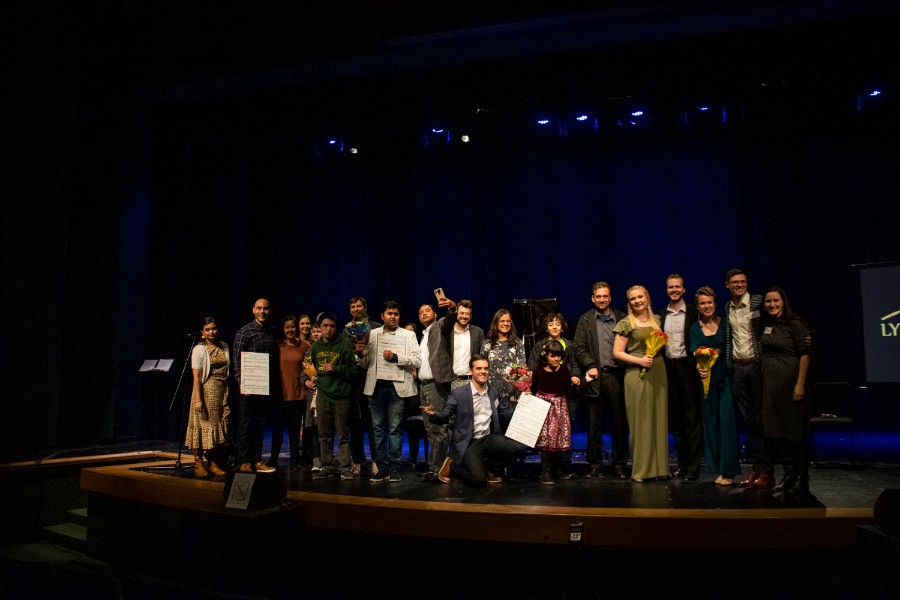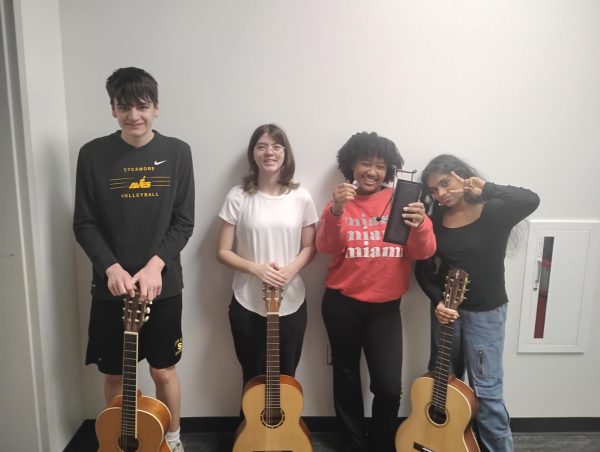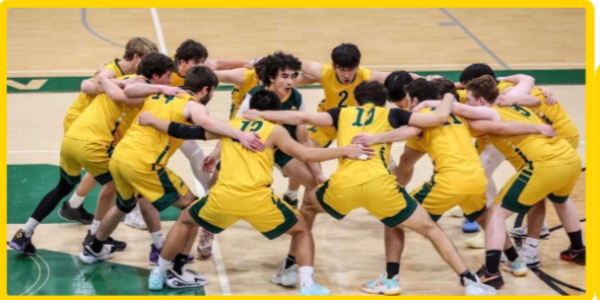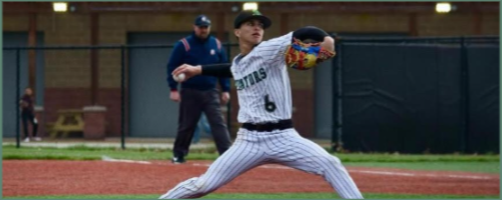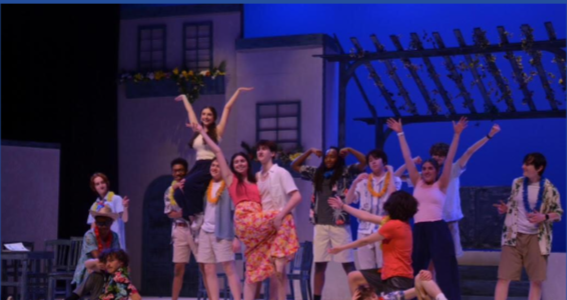Lynx Project performs Autism Advocacy concert at SHS
CREATING LYNX. The Lynx Project’s staff, performers, young writers and their families gather on stage for a photo after the concert. The Lynx Project set words written by young people with autism who are nonverbal to music for voice and piano, and provides these students with an outlet to share their voice. Caitleen Kahn, executive director and co-founder, shared that she would love to see “this music performed more widely” and have a “broader impact.” Photo courtesy of Kate Hursh.
Lights up. The SHS auditorium fills with sound. But this music is not coming from Sycamore’s many musical ensembles, as one might expect. It is the unique concert experience created by the Lynx Project.
On Sat., Feb. 29, the Lynx Project performed its third Autism Advocacy Series concert at SHS. The Lynx Project, according to their website, is a “nonprofit art song initiative whose mission is to build community through innovative song programming and educational initiatives and to provide a platform for every voice to be heard.”
The Lynx Project takes poetry written by young people with autism and transforms it into art song, which is poetry set to music for piano and voice. This year, the project commissioned three composers to create music based on words written by four students, who all go to Sycamore. There were also four performers involved in this year’s concert.
The student writers— Emily Friend, Nina Szabo, Aarush Srivastava, and Darren Stella— are between the ages of 10 and 19 and all have autism and are primarily nonverbal.
These writers communicated their poems through the Rapid Prompting Method. This is an educational and communication method that can help people who are nonverbal be able to express themselves and communicate by using a letterboard to spell out words.
The Lynx Project began in 2017, after the founding members, who met during grad school, wanted to create a project that would allow them to bring art song to a larger audience. Katie Masotti, the sister of co-founder Megan Moore, worked as a special education teacher in Cincinnati and is a certified provider of the Rapid Prompting Method. Masotti’s experience seeing the writing her students with nonverbal autism could create inspired the project to commision compositions setting words written by young people with autism to music.
Caitleen Kahn, Lynx Project’s executive director and co-founder, explained that the process of developing the concert takes about a year. From the original poetry submissions to composition to performance, the result is a unique show that gives these youth, who can struggle to express themselves, a voice.
Additionally, the performance itself is friendly for families with children who have special needs because it takes into account the sensory and overall needs of these individuals. While a typical classical music concert involves sitting quietly and clapping after each performance, this is not the case for the Lynx Project’s concert.
The sensory-friendly performance uses minimal lighting changes, snapping and hand-waving instead of clapping, provides a sensory-relief space, and allows families to come and go as needed. “We really want to show that this music is for everyone,” said Kahn.
Even after just three years, Kahn has seen the tremendous impact the Lynx Project has had on everyone involved.
“I hope within the autism community, that [the Lynx Project has] had the impact of giving these students a really exciting platform through which their voice can be heard. We hope as well that it… makes art song and makes classical music relevant and exciting to a population who might not have really thought that this music was for them…,” Kahn said.
She also explained the way the project has altered how people view individuals with autism.
“Our composers and performers, who are often…musicians who have no prior knowledge of autism or no personal experience with autism…we see that this has had a really profound emotional impact on them, and that now…they’re able to view people who have autism and particularly people who aren’t able to communicate verbally in a new light,” Kahn said.
The Lynx Project is primarily based in Cincinnati, but has also previously had performances in Chicago and New York, and will have a concert in Chicago on March 7. They are publishing an anthology of the songs in 2021, which they hope will allow them to reach a greater audience.
Your donation will support the student journalists of Sycamore High School. Your contribution will allow us to purchase equipment and cover our annual website hosting costs.



